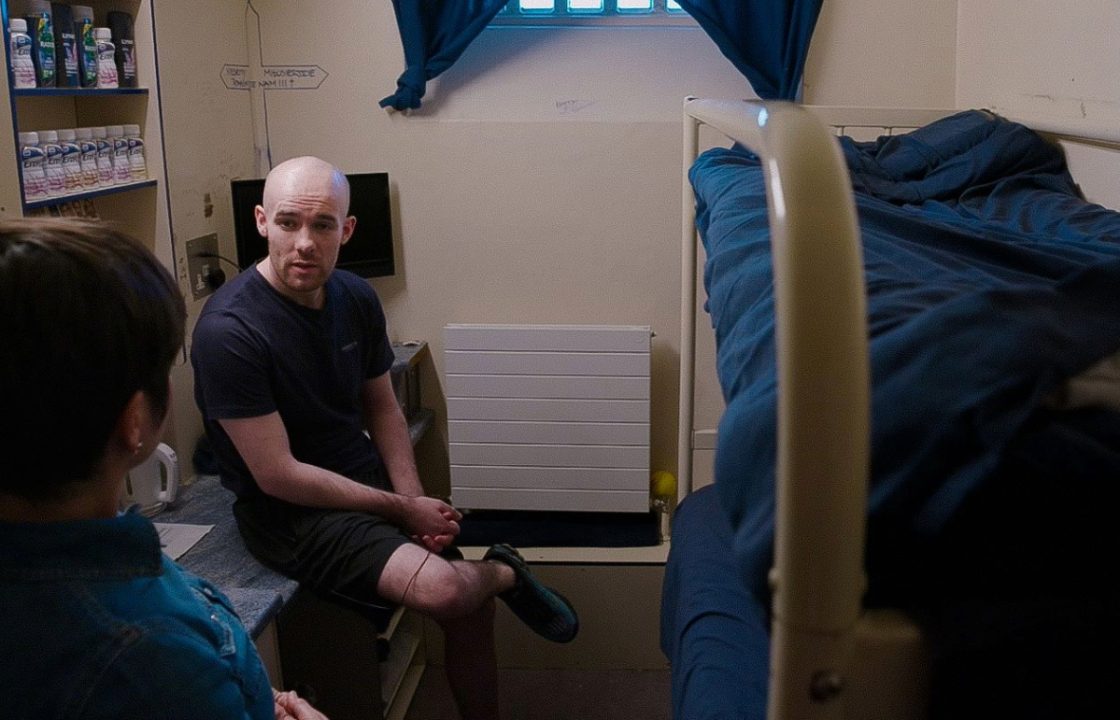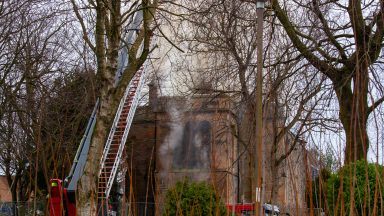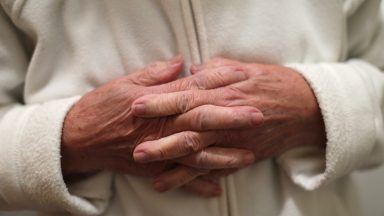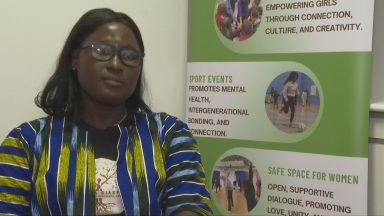Prisoners may need to be released with no restrictions placed on them if action is not taken to reduce jail populations, the head of the Scottish Prison Service has told BBC Disclosure.
Teresa Medhurst, chief executive of the Scottish Prison Service, was interviewed as part of Disclosure: Prisons On The Brink which is on BBC One Scotland on Monday.
She told the programme that overcrowding in prisons is at a “tipping point” and that emergency powers may be needed to release inmates early.
Ms Medhurst told the programme: “If I have to say enough is enough then it is because we are at a tipping point.
“We cannot take any more. Prisons become very unsafe. The atmosphere, the tension, the volatility increases. Levels of violence increase, levels of self-harm increase.
“At the moment I’m confident that we can manage between now and the springtime.”
But she said projections for March-April made her “less comfortable” the service could cope.
Currently, 8,000 people are housed in Scotland’s prisons, with the population set to increase to 8,700 this year.
As part of an investigation into overcrowding in Scottish prisons, the BBC Disclosure team was granted access to HMP Perth, which has a population of 662 prisoners when the capacity is 630.
BBC reporter Lucy Adams was escorted around the prison, which is Scotland’s oldest, by officer Craig Stewart.
Hyper-vigilance is a “necessary part” of everyday survival, officers and inmates say, with many of those inside speaking to the BBC of their remorse and wanting to make amends.
Chris Martin, an inmate at HMP Perth, will be released soon and says he wants to leave his mistakes behind him.
He said: “I’m getting a job. I want to start a family. That is living to me. What I’m on about. That is life.
“I want to just be able to live a normal lifestyle.”
Brian Kinloch is in HMP Perth on remand, awaiting trial.
Kinloch, who grew up in care, said: “Since I’ve been in, I’ve been trying to access mental health support which has been very difficult. It’ll be a seven-month waiting list,” he told the BBC.
“It’s difficult for most people. There was a suicide just there. A young boy, 24-year-old. This is more like a mental health facility than a prison.
“Like I said, the boy down there didn’t have seven months in him.”
Ms Medhurst said there are growing tensions as a result of overcrowding.
Kieran Wallace said being in a cell at HMP Perth would be “hard enough for one person, never mind two”.
The European Committee for the Prevention of Torture says that cells shared by prisoners need to be above 8m sq so as not to be inhuman and degrading.
Wallace’s cell is less than 7m sq and he spends 19 hours a day locked inside.
Andy Hodge, the governor at Perth, said: “The pressure of population is forcing us to put more people into one room.
“That’s a real stretch.
“Two adult men into a room where you’ve got one TV, one kettle, tensions start to build, people start to fall out.
“Violence amongst the residents starts to go up.”
He said there is contingency planning which could see the Scottish Government beginning an early release scheme if the numbers get too high.
Justice Secretary Angela Constance said ministers were looking at new legislation, contingency measures and investing in community sentences to try to reduce the prison population.
She said: “I would very much accept that as a consequence of a rising prison population, that that has an impact on progression, it has an impact on rehabilitation.
“And that is why addressing a rising prison population is also a matter of community safety.”
The programme will air on BBC One Scotland at 8.05pm on Monday.
Justice Secretary Angela Constance said: “In collaboration with the Scottish Prison Service and other key justice organisations we continue to monitor the situation closely and are taking action to tackle the rising prison population.
“This includes making the best use of the current prison estate and sourcing additional prisoner places to ensure the safety and wellbeing of people living and working in prisons.
“The draft budget includes an extra £14 million to support community justice services and ongoing work to further enable a shift away from the use of custody, including action to strengthen alternatives to remand.
“In addition we are developing options for greater use of electronic monitoring to support community based interventions.”
Follow STV News on WhatsApp
Scan the QR code on your mobile device for all the latest news from around the country


 PA Media
PA Media


























